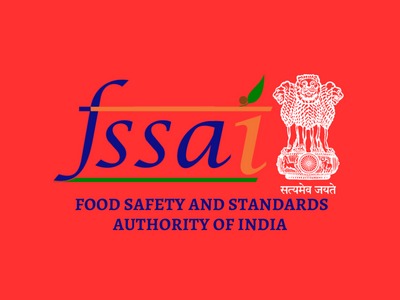
The Food Safety and Standards Authority of India (FSSAI) has issued a draft regulation proposing a complete ban on the use of Per- and Polyfluoroalkyl Substances (PFAs) and Bisphenol A (BPA) in food packaging materials. This move aims to strengthen consumer safety and align India’s packaging standards with international best practices.
Key Highlights
- Toxic Substances Prohibited: The draft regulation strictly prohibits PFAs and BPA—chemicals known for their long-term health hazards and environmental persistence.
- Health Concerns: Both substances have been linked to endocrine disruption, reproductive disorders, and increased cancer risk.
- Global Alignment: The decision brings India closer to regulations already enforced in the EU and the U.S., where PFAs and BPA are heavily restricted in packaging and containers.
- Industry Transition: Food packaging manufacturers will be required to shift toward eco-friendly, non-toxic materials such as glass, paperboard, and bioplastics.
- Public Feedback: FSSAI has invited stakeholder comments before finalizing the notification, signaling an inclusive approach toward policy implementation.
Who Should Take Action – Specific Advice
Food manufacturers and packaging suppliers should immediately audit their packaging materials to ensure compliance with the upcoming norms. Regulatory teams must coordinate with suppliers to eliminate PFAs and BPA from the production line. Businesses using imported packaging materials should seek certification from approved labs to avoid penalties after the rules come into effect.
India Advocacy Insight
This regulatory shift marks a critical step toward safer, sustainable food packaging in India. By eliminating hazardous chemicals from the supply chain, FSSAI reinforces its commitment to public health and environmental protection. For the industry, early adaptation will not only ensure compliance but also open new opportunities in the growing market for green and recyclable packaging.
![]()



